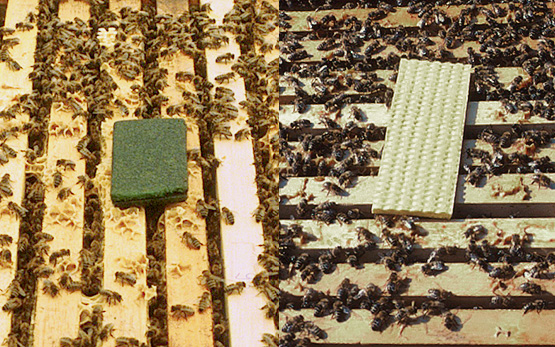Arrigoni G., von Ah U., Grasso F., Irmler S., Usorini P., Vecchio L., Morelli L.
Sustainable use of nutrient-rich by-products in starter culture and probiotics production.
In: FEMS Micro Milan 2025. 14 July, Milano (IT). 2025.
Bachmann H.-P., Stergiou M. T.
Mikrobiologie von Sauerteig: einfach oder komplex?
Agrarforschung Schweiz, 15, 2024, 294-303.
Purtschert G., Roetschi A., Irmler S., Von Ah U., Arias E.
Lactic acid bacteria as protective cultures for plant-based food.
In: 28th International ICFMH Conference FOOD MICRO 2024. 8 July, Burgos. 2024, 1.
Purtschert G., Arias E.
Small consortia of microorganisms enhancing the taste and safety of our food.
In: 11. Nachhaltigkeitstagung. 25. January, Reckenholz. 2024, 1-18.
Bachmann H.-P., Guggisberg D., Shani N.
Studie über die Authentizität von Walliser Roggenbrot AOP: Konzept und erste Ergebnisse.
In: Cheese & Science. 11. Juni, Hrsg. Agroscope, Bern. 2024, 1-25.
Purtschert G., Von Ah U., Walther B., Guggenbühl B., Zwyssig E., Guggisberg D., Fuchsmann P., Bachmann H.-P., Stoffers H.
HybPi-Cheese: hybrid technology to decrease animal protein maintaining nutritional and sensory properties.
In: LAB Symposium 2023. 27. August, Holland (NL). 2023.
Stoffers H., Schmidt R., Bachmann H.-P.
New process for the ripening of cheese.
In: Conference 2023 Face-Network. 12 October, Grangeneuve. 2023, 1.
Von Ah U., Stoffers H., Guggenbühl B., Walther B., Purtschert G., Bachmann H.-P., Fuchsmann P.
HybPi-Cheese: A possibility for animal protein reduction without losing cheese characteristics.
In: MiFFI - Microbial Food and Feed Ingredients 2023. 19. April, Copenhagen. 2023, 1-16.
Stoffers H., Bachmann H.-P., Guggenbühl B., Zwyssig E., Von Ah U., Walther B.
Hybridkäse – Liaison zwischen Milch und pflanzlichen Rohstoffe.
In: Liebefelder Milchtagung 2022. 08. November, Zollikofen. 2022.
weitere Sprachen:
französisch
Stoffers H., Bachmann H.-P., Guggenbühl B., Zwyssig E., Von Ah U., Walther B.
Hybridkäse – Liaison zwischen Milch und pflanzlichen Rohstoffe.
In: Liebefelder Milchtagung 2022. 8. November, Hrsg. Agroscope, Zollikofen (Schweiz). 2022, 1-11.
weitere Sprachen:
französisch
Stoffers H., Bachmann H.-P., Guggenbühl B., Von Ah U., Zwyssig E., Walther B.
HybPiKäs - Liaison zwischen Milch und pflanzlichen Rohstoffen.
In: Cheese & Science. 17. November, Hrsg. Agroscope, Liebefeld. 2022.
Stoffers H., Bachmann H.-P., Guggenbühl B., Von Ah U., Zwyssig E., Walther B.
HybPiKäs - Liaison zwischen Milch und pflanzlichen Rohstoffen.
In: Swiss Food Week. 15. November, Hrsg. Agroscope & SATW, Zürich. 2022.
Bachmann H.-P., Wampfler B.
Wie wirken Schallwellen auf Pflanzen und Mikroorganismen?
Agrarforschung Schweiz, 13, 2022, 168-176.
Bachmann H.-P., Schmidt R., Stoffers H.
Neues Reifungsverfahren für mehr Geschmack und Form.
LT Lebensmittel Technologie, 9, 2022, 22-23.
Bachmann H.-P.
Neues Verfahren für die Reifung von Käse.
Die Grüne, 4, 2022, 3.
Stoffers H., Schmidt R., Bachmann H.-P.
Le nouveau procédé d’affinage du fromage d’Agroscope a fait ses premières preuves.
In: InnoFood&Co. 14. Juni, Bulle. 2022.
Stäger C., Bachmann H.-P.
Neues Käsereifungsverfahren besteht die erste Bewährungsprobe.
Innovation Food, 4, 2022, 28-29.
Bachmann H.-P.
Neues Käsereifungsverfahren von Agroscope besteht erste Bewährungsprobe.
Milch & Käse, 1, 2022, 19-20.
Von Ah U.
Lenticules – neues Trocknungsverfahren und Angebotsform für Starterkulturen.
In: Milchtagung 2021. 10. März, Agroscope. 2022.
Bachmann H.-P., Stoffers H.
New cheese ripening method.
In: Monthly Meeting FaceNetwork Working Group "Technology". 11.01., FaceNetwork. 2022, 1-11.






